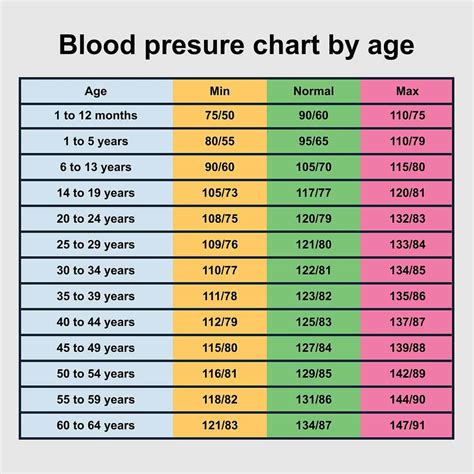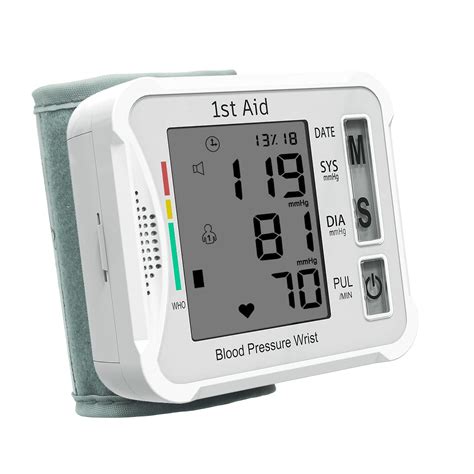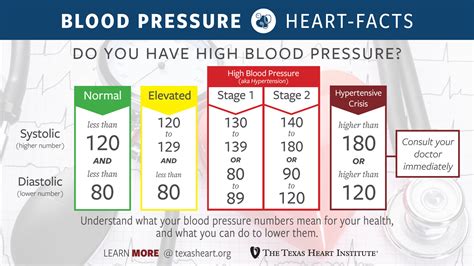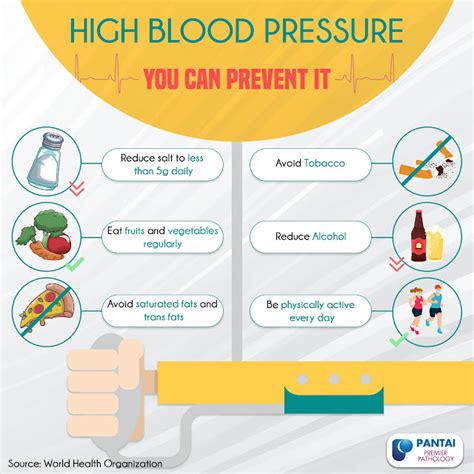Intro
Discover the ideal Normal Blood Pressure Range, including systolic and diastolic readings, to maintain a healthy cardiovascular system and prevent hypertension, hypotension, and related heart diseases.
Maintaining a healthy blood pressure is crucial for overall well-being. Blood pressure is the force of blood pushing against the walls of arteries as it circulates throughout the body. It is measured in millimeters of mercury (mmHg) and is typically expressed as two numbers: systolic pressure (the top number) and diastolic pressure (the bottom number). Understanding the normal blood pressure range is essential for identifying potential health issues and taking preventive measures. In this article, we will delve into the world of blood pressure, exploring its importance, the normal blood pressure range, and factors that influence it.
Blood pressure plays a vital role in delivering oxygen and nutrients to cells and organs. It also helps to remove waste products from the body. When blood pressure is within the normal range, it ensures that the heart, brain, kidneys, and other vital organs function properly. On the other hand, high or low blood pressure can lead to serious health problems, such as heart disease, stroke, and kidney damage. Therefore, it is essential to monitor blood pressure regularly and take steps to maintain a healthy range.
The importance of maintaining a normal blood pressure range cannot be overstated. According to the American Heart Association, nearly half of all adults in the United States have high blood pressure, which increases the risk of developing cardiovascular disease. By understanding the normal blood pressure range and taking preventive measures, individuals can reduce their risk of developing high blood pressure and related health issues. In the following sections, we will explore the normal blood pressure range, factors that influence it, and provide tips on how to maintain a healthy blood pressure.
What is the Normal Blood Pressure Range?

Factors that Influence Blood Pressure
Several factors can influence blood pressure, including: * Age: Blood pressure tends to increase with age * Sex: Men are more likely to develop high blood pressure than women * Family history: A family history of high blood pressure can increase the risk * Lifestyle: Diet, physical activity, stress, and sleep can all impact blood pressure * Medical conditions: Certain medical conditions, such as kidney disease and sleep apnea, can increase blood pressureHow to Maintain a Healthy Blood Pressure

Benefits of Maintaining a Healthy Blood Pressure
Maintaining a healthy blood pressure can have numerous benefits, including: * Reduced risk of heart disease and stroke * Lower risk of kidney disease and kidney failure * Improved cognitive function and reduced risk of dementia * Enhanced overall health and well-beingMonitoring Blood Pressure

Common Blood Pressure Medications
If lifestyle changes are not enough to maintain a healthy blood pressure, medication may be necessary. Here are some common blood pressure medications: * Diuretics: Help the body get rid of excess fluid and salt * Beta blockers: Slow the heart rate and reduce blood pressure * ACE inhibitors: Block the production of a hormone that constricts blood vessels * Calcium channel blockers: Relax blood vessels and reduce blood pressureTreatment Options for High Blood Pressure

Complications of High Blood Pressure
If left untreated, high blood pressure can lead to serious complications, including: * Heart disease: High blood pressure can increase the risk of heart disease and heart failure * Stroke: High blood pressure can increase the risk of stroke and brain damage * Kidney disease: High blood pressure can damage the kidneys and increase the risk of kidney failure * Vision loss: High blood pressure can cause vision loss and blindnessPreventing High Blood Pressure

Importance of Early Detection
Early detection of high blood pressure is crucial for preventing complications. Here are some reasons why early detection is important: * Reduced risk of complications: Early detection and treatment can reduce the risk of complications, such as heart disease and stroke * Improved treatment outcomes: Early detection and treatment can improve treatment outcomes and reduce the risk of medication side effects * Enhanced quality of life: Early detection and treatment can enhance quality of life and reduce the risk of disability and deathWhat is the normal blood pressure range for adults?
+The normal blood pressure range for adults is typically less than 120/80 mmHg.
What are the risks of high blood pressure?
+High blood pressure can increase the risk of heart disease, stroke, kidney disease, and vision loss.
How can I lower my blood pressure?
+You can lower your blood pressure by making lifestyle changes, such as eating a balanced diet, exercising regularly, and managing stress.
In summary, maintaining a healthy blood pressure is crucial for overall health and well-being. By understanding the normal blood pressure range, factors that influence it, and taking preventive measures, individuals can reduce their risk of developing high blood pressure and related health issues. We encourage you to share this article with others, ask questions in the comments section, and take action to maintain a healthy blood pressure. Remember, early detection and treatment are key to preventing complications and improving treatment outcomes. Take the first step today and start monitoring your blood pressure to ensure a healthy and happy life.
